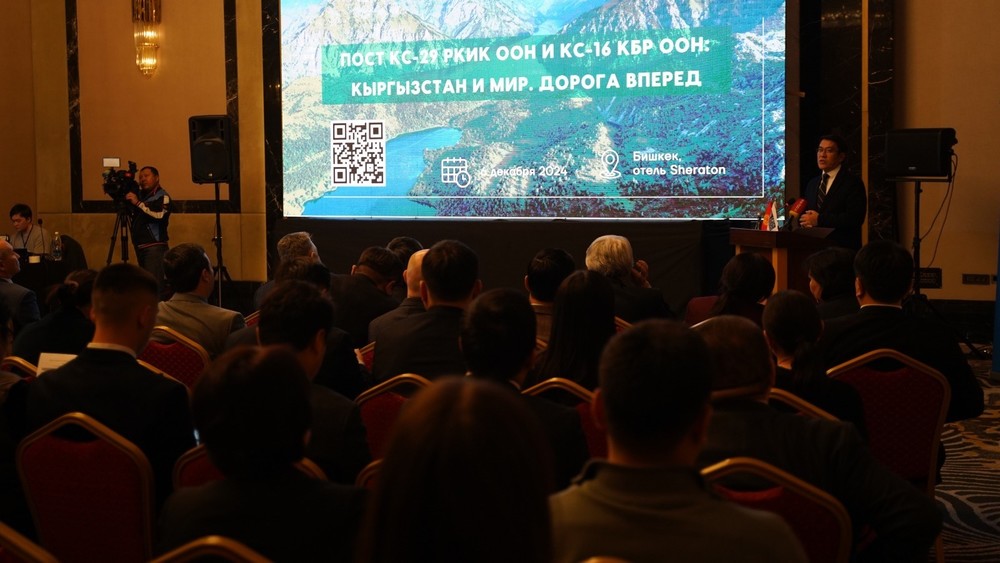In the Chui region of the Kyrgyz Republic, agriculture is the most important sector of the economy, significantly influencing the well-being of the population of the region. Agriculture is highly dependent on the availability of irrigation water, which is becoming increasingly scarce due to internal migration and population growth in the Chui region, including the Alamudin region. In addition, the lack of water in recent years has only aggravated the problem of water shortage. In turn, this situation leads to a decrease in agricultural productivity in the region and creates significant economic and social problems for rural communities.
Access to irrigation water and infrastructure is critical to increasing agricultural productivity and expanding economic opportunities for women in the Chui region.
The deterioration of irrigation infrastructure and the use of traditional irrigation methods leads to a decrease in the coefficient of irrigation water use, productivity and income of farmers in the Chui region.
Moreover, women face gender inequalities in the agricultural sector, such as limited access to credit, land and extension services, which limit their participation and contribution to the sector .
The solution to the above-mentioned problems of economic dependence and gender inequality in the Chui region is being carried out within the framework of the regional project“ Increasing economic independence and improving the status of women in Central Asia through access to irrigation water and infrastructure.”
This regional project is being implemented by the Regional Environmental Center for Central Asia (CAREC) with the financial support of the international Coca-Cola Foundation and covers 3 Central Asian countries: Kazakhstan, Kyrgyzstan and Tajikistan.
During the implementation of the regional project “Increasing economic independence and improving the status of women in Central Asia through access to irrigation water and infrastructure”, rehabilitation works were completed in the Ta-Bek WUAs of the Kara-Zhygach aiyl aimag of the Alamudun district of the Chui region on June 30, 2024:
• A 265-meter-long section has been concreted on the R-21 water channel, and four water distribution facilities have been installed;
• A 78-meter-long section has been concreted on the R-21 water channel.
Rehabilitation works have helped to increase the water availability of irrigated lands on an area of 25 hectares in the village of Bek-Too of the Kara-Zhygachsky aiyl aimag of the Alamudun district, as well as more than 100 hectares in the village of Sary–Zhon of the Ysyk-Ata district, increased irrigation water savings and crop yields.
In order to demonstrate the careful use of irrigation water and increase crop yields, drip irrigation was installed on 1 hectare in the territory of the pilot WUA “Ta-Bek”.
In Kyrgyzstan, this project is being implemented by a branch of the Regional Environmental Center of Central Asia in the Kyrgyz Republic.
Before rehabilitation, water channel ” R-20 ”

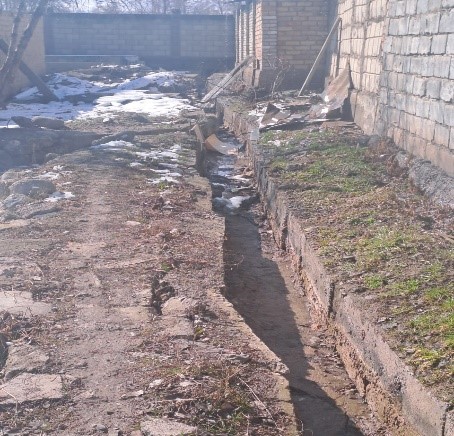
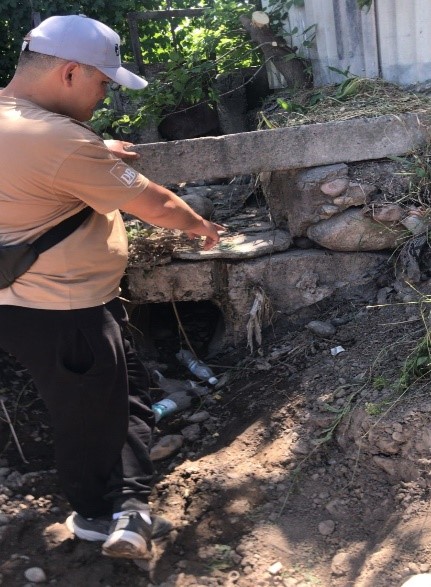
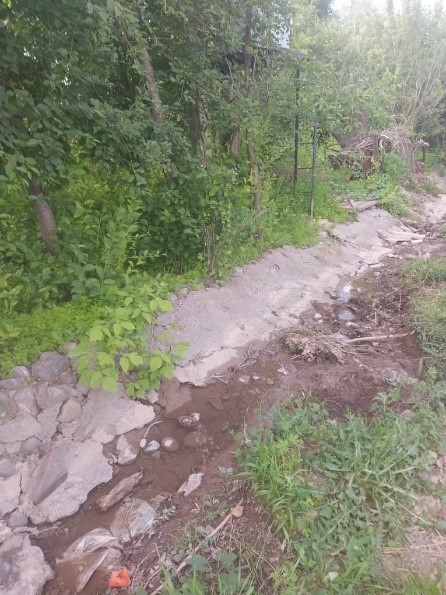
After rehabilitation, water channel ” R-20 ”
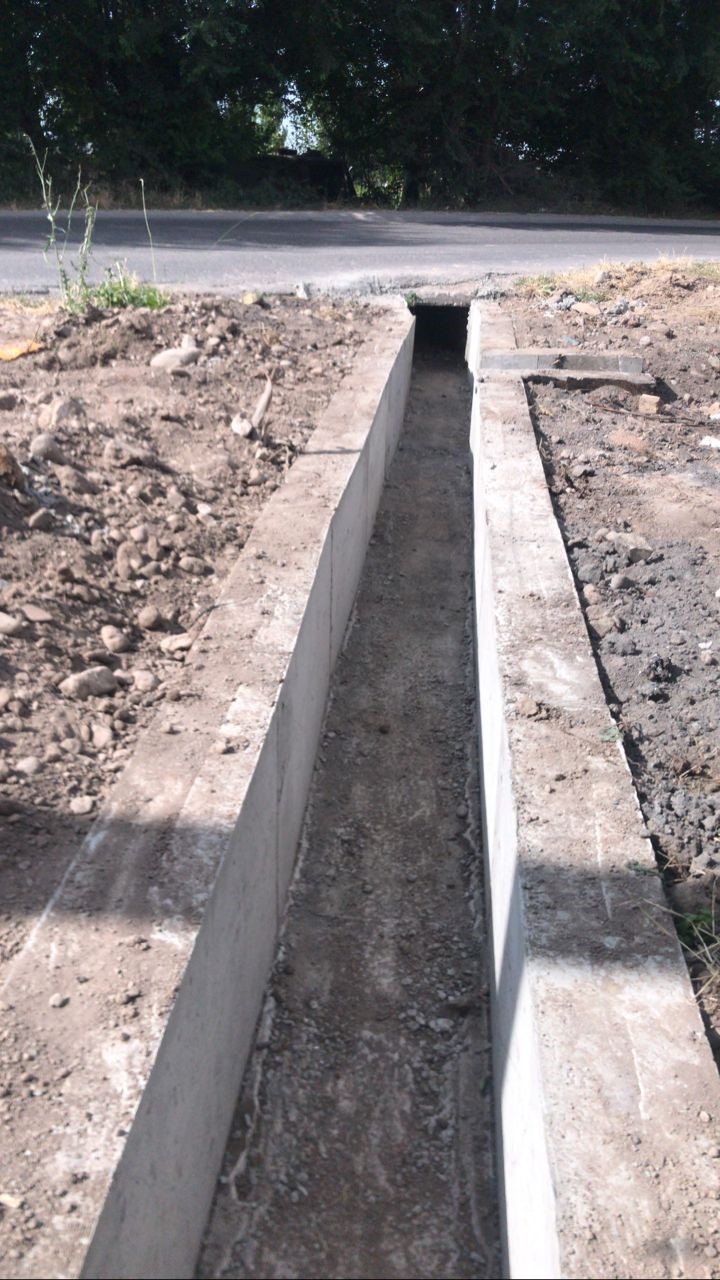
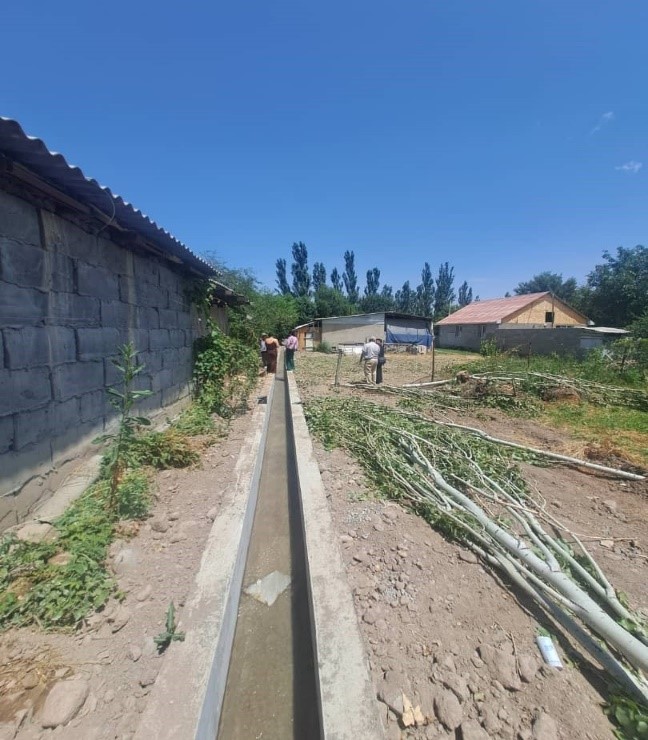
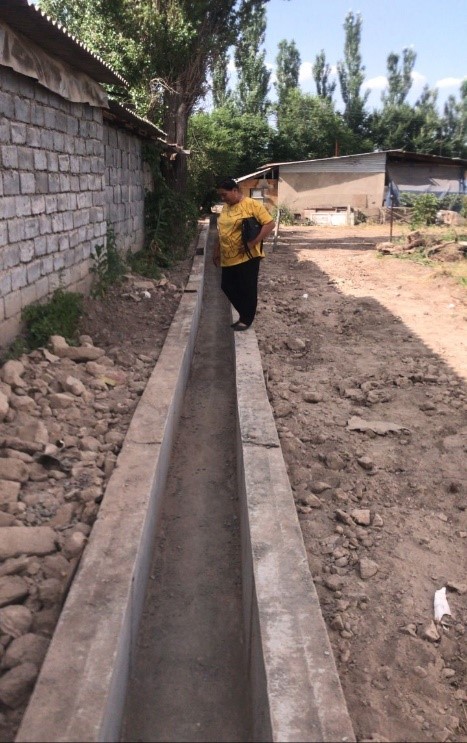
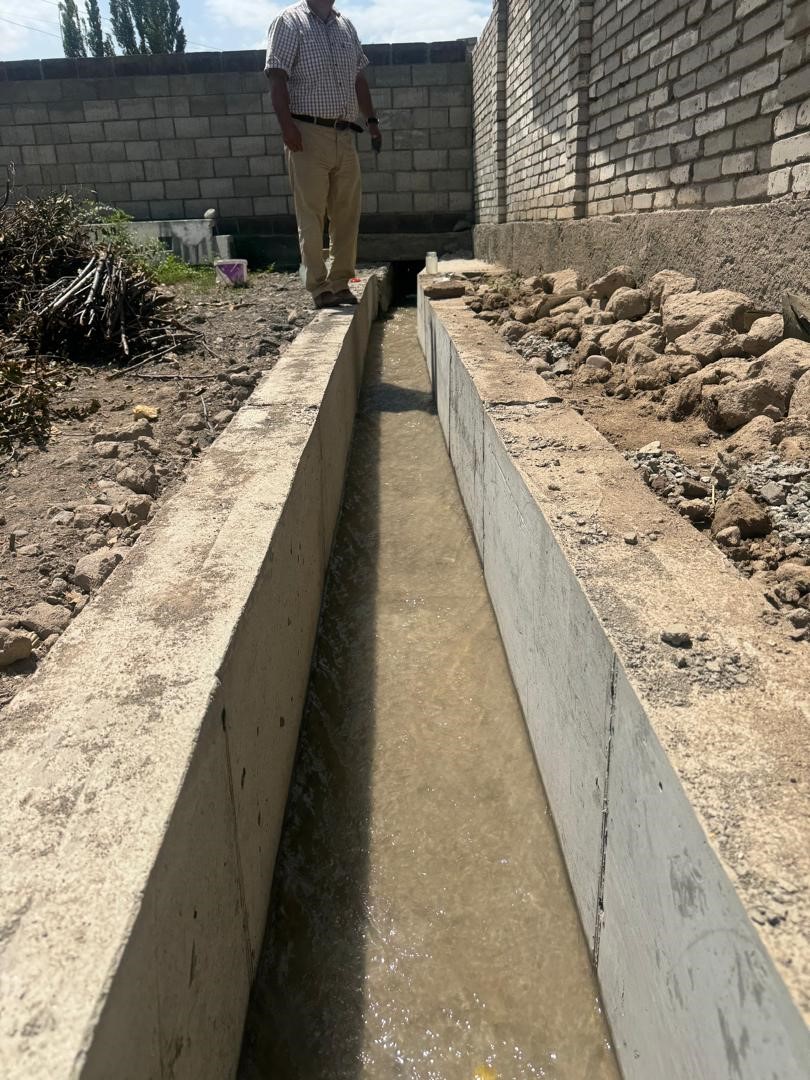
On the R-21 water channel , 4 water distribution structures were built, at the beginning and at the end of the canal, 8 flat gate shields of size PZ 60×60 were installed, 258 meters of the canal were lined with concrete, the water supply of irrigated lands on an area of 240 hectares was increased , and irrigation savings were also increased water and crop yields
Before rehabilitation, water channel ” R-21 ”
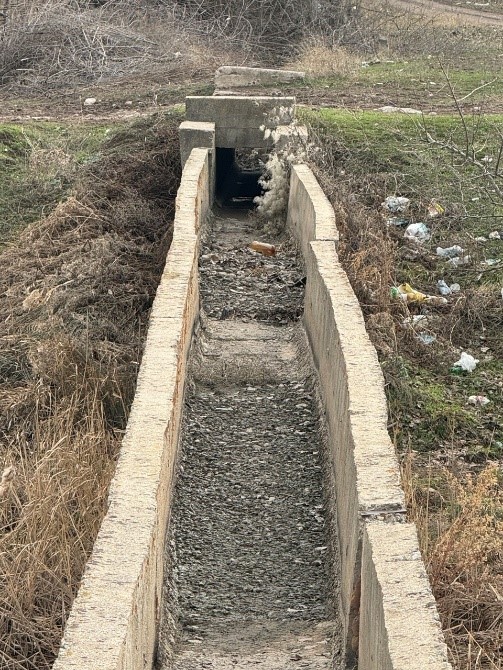
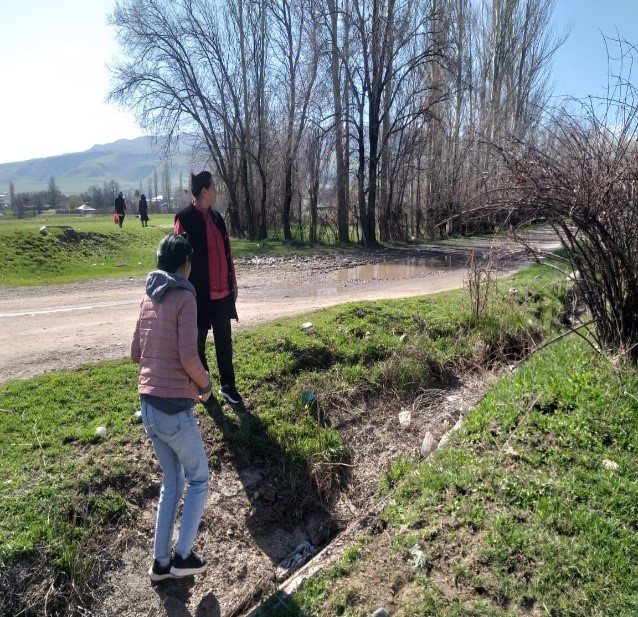
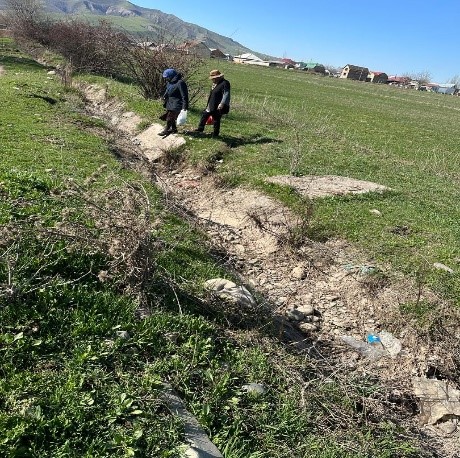
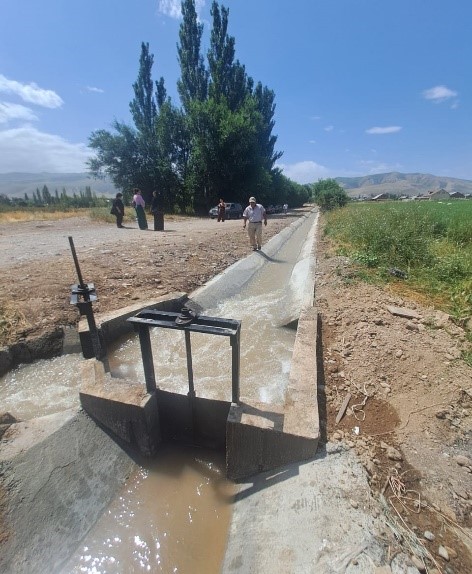
After rehabilitation , water channel ” R-21 ”
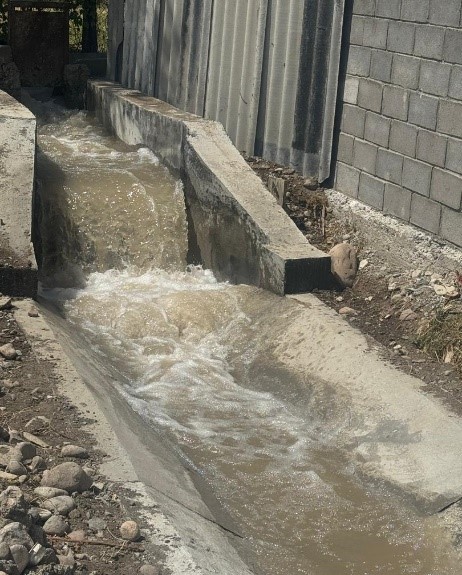

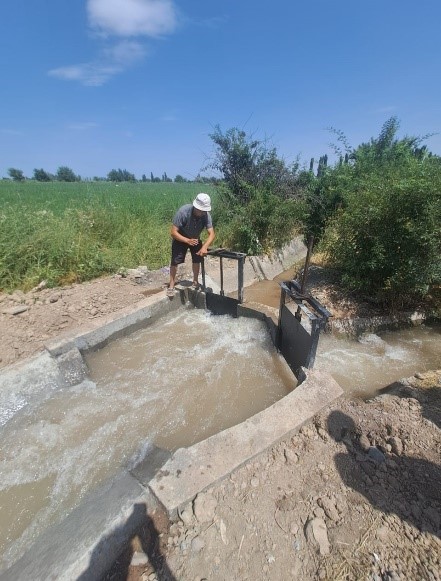
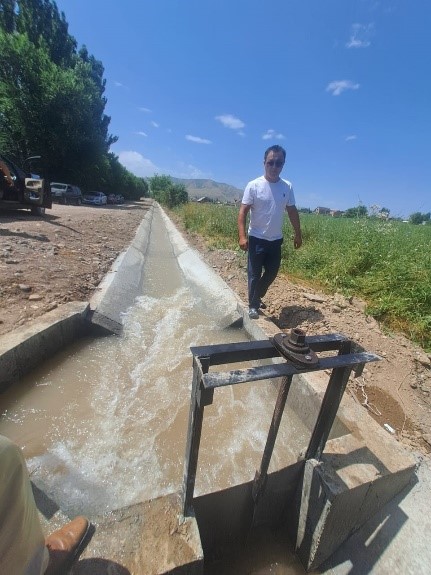
As part of the project, the installation of a drip irrigation system on the land plot of farmer Chokomanov Nurlan was completed in Kara- Zhigach aiyl aimak of the Alamudun district, which helps to save irrigation water and increase agricultural productivity.
On June 30, 2024, specialists in water-saving technologies held a seminar for farmers of Kara- Zhygach aiyl aimak, where they told and provided all the necessary information, including practical examples and recommendations on the use of modern technologies available to farmers for the efficient use of irrigation water and water-saving technologies.
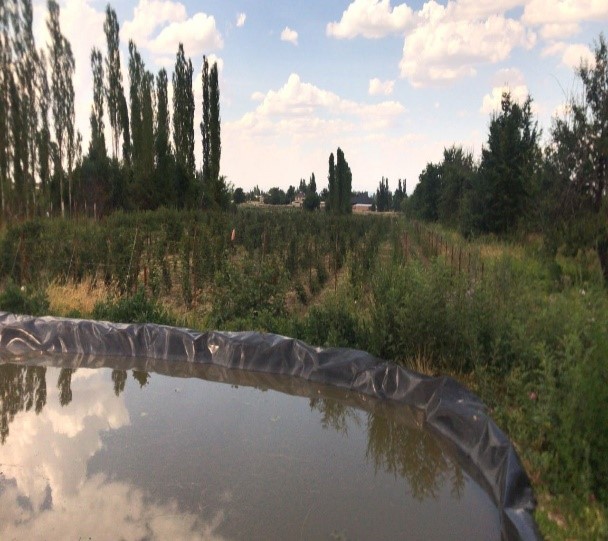
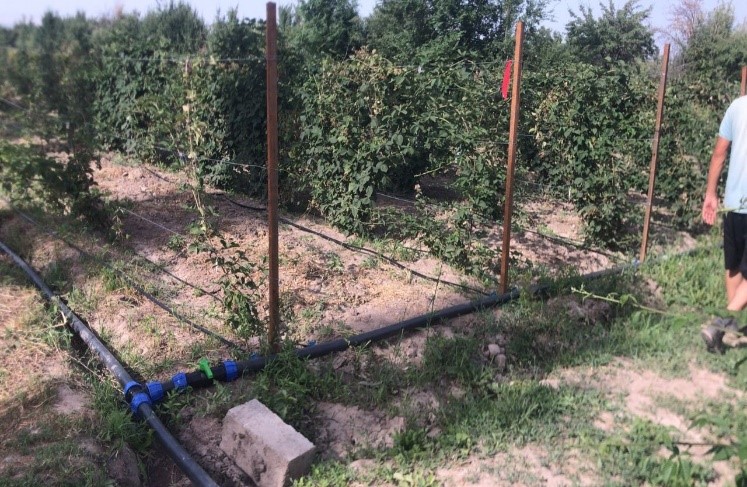
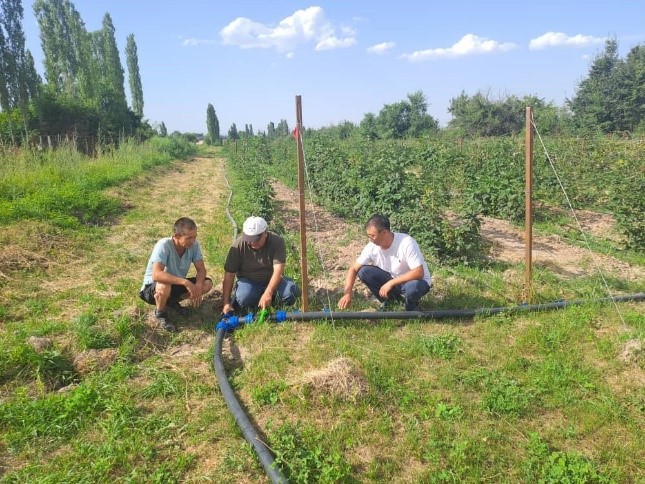
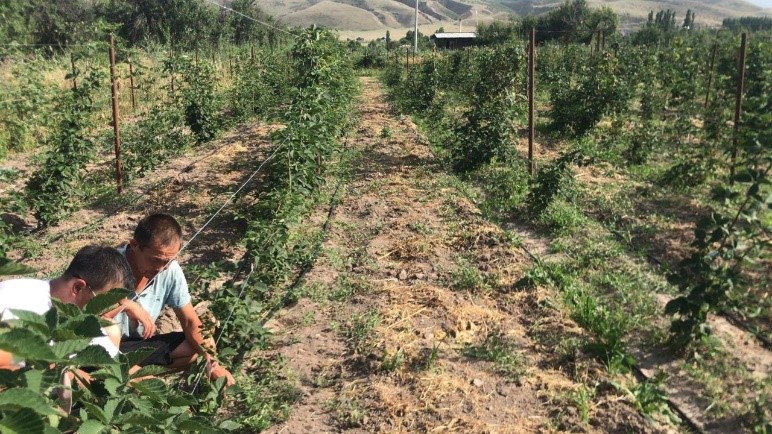
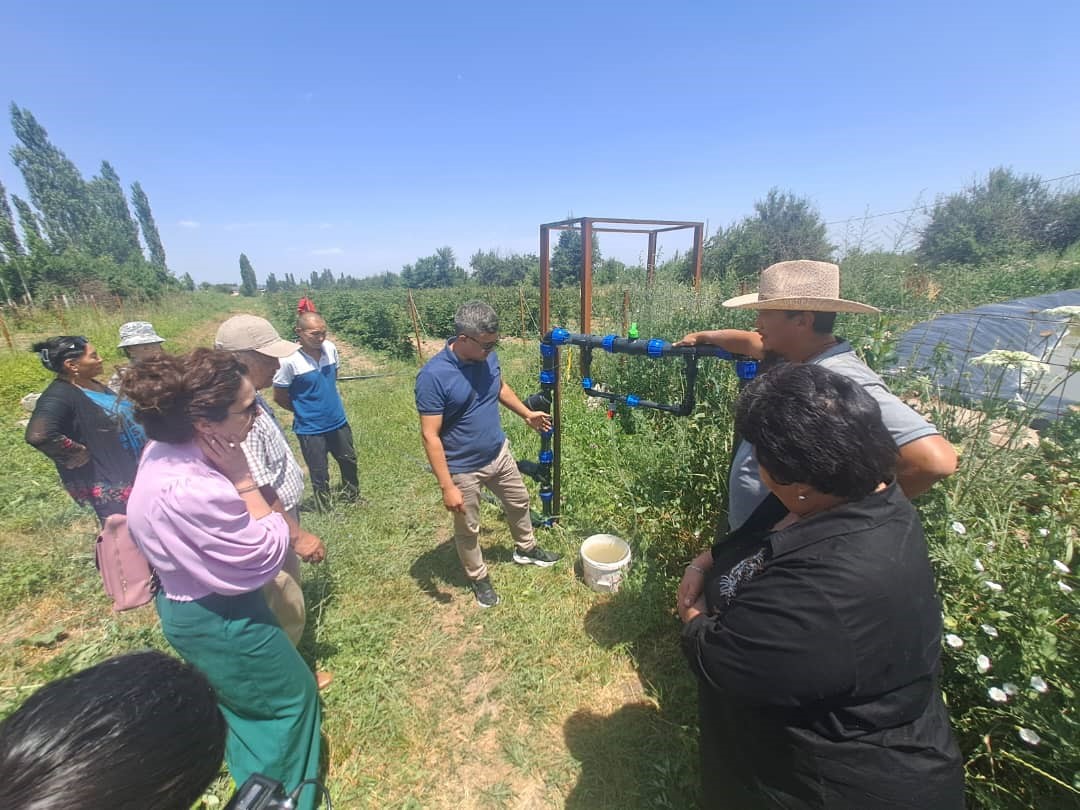
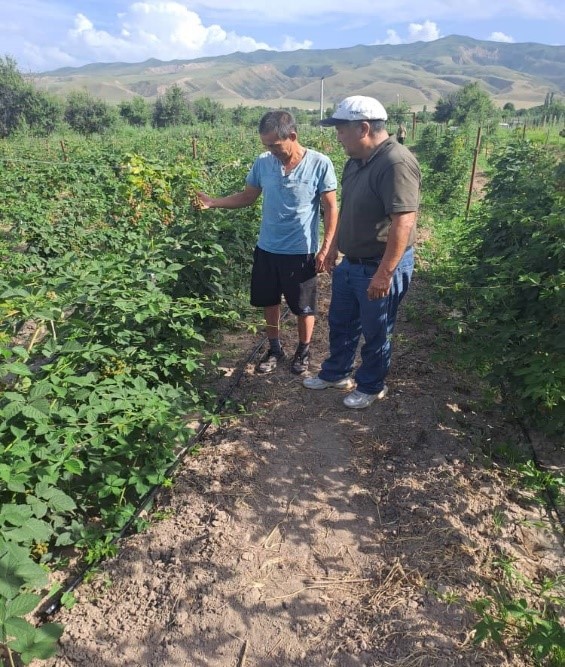
Additional Information:
Kuban Matraimov , director of the CAREC branch in the Kyrgyz Republic, kmatraimov@carececo.org


